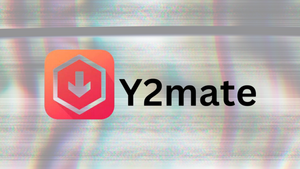The International Federation Of The Phonographic Industry has hailed developments in Vietnam and Brazil respectively targeting stream-ripping and stream manipulation.
In Vietnam, legal action has resulted in the closure of popular stream-ripping site Y2mate and a number of related sites which together, the IFPI says, received more than 620 million visits in the last year.
Stream-ripping - where users can grab permanent downloads of temporary streams - has been a top piracy gripe of the music industry for quite some time now, prompting legal action and web-blocking orders against various stream-ripping services in multiple countries.
Y2mate in particular has been high on the gripe list for a few years, with web-blocks - injunctions where internet service providers are ordered to block a website - issued in thirteen countries against the service.
IFPI says in a statement that, “following targeted enforcement action in Vietnam”, the operator of Y2mate and its connected services has “agreed to shut down the sites for good and to stop infringing IFPI’s members rights in the future. Most of the domains are now in IFPI’s possession”.
IFPI boss Victoria Oakley adds, “This marks a major milestone in our ongoing work to tackle stream-ripping, one of the most prevalent forms of online music piracy”.
“It is a first of its kind success in Vietnam for the music industry”, she adds, “and we aim to build on this momentum to address other infringing services operated from the region. We will continue to tackle services which infringe our members’ rights and to help protect the global music community”.
Seeking to block and stop websites that help people to manipulate streaming numbers is a newer priority for the record industry, and there has been a lot of work done in that domain in Brazil in particular.
In the latest development in the country, a civil court in São Paulo has ruled that TurbineDigital, which allows users to pay to boost viewing and engagement stats on platforms like YouTube and Instagram, is violating Brazil’s Consumer Protection Act. As a result, the court has issued an injunction ordering that the website’s domains be blocked or suspended.
On that judgement, Oakley says, “This ruling is another strong step forward in the global fight against streaming fraud and further recognition that this activity harms consumers. Courts in Brazil are sending a clear message that committing fraud through fake streams, likes or followers is illegal and harms the entire music ecosystem”.

